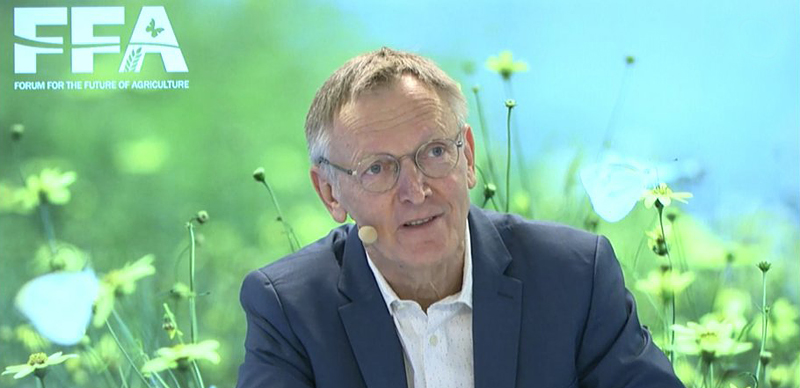FFA2020 Online Live Event: Opening Remarks
Opening Remarks Janez Potočnik, Chair FFA2020, Chairman RISE Foundation
Monday, Jun 15, 2020
Prefer to watch the live presentation?
Click here to watch all the sessions from FFA2020 Regional Online Live on video.
Ladies and gentlemen, thank you for joining us today. Strange days, to put it mildly.
And Catherine, thank you for joining me here in Brussels studio.
As many of you know, we were not able to meet with you in Brussels at the end of March as we had planned. For obvious reasons of safety and together with the FFA strategic partners, we were forced to cancel that event. However, life goes on, and we are excited to see, or at least feel, so many of you here today.
Now that most countries have begun to flatten the curve of new infection, at least in Europe and at least for some unknown period, and our public and private lives are beginning to open again, we could face an even greater challenge than the pandemic itself: shaping a lasting and sustainable recovery.
The post-corona world today looks exactly like the old one – farmers are back to how they worked before, ships are filling our sea lanes, and your supermarket will not have changed much – apart from the longer queue to get in. The world has not changed much. At best it we understand it a bit more. Unless we demand that is it different, the recovery will easily allow it to go back to all the bad habits we embraced so warmly before.
And we must demand it. I do not have the time to go into detail today, but in comparison to the hard sprint that we have just run to protect ourselves from disease, protecting the climate and global biodiversity from ourselves is a marathon.
Given the extraordinary expenditures now laid out, or proposed by our governments, we have every right to demand – not just as taxpayers, but as citizens and neighbours – that all of it comes with serious green strings attached.
In some ways, it is fortunate that the EU has already put many strategies in place before the outbreak hit; starting with the European Green Deal and followed by many others; the Farm to Fork and Biodiversity Strategies, and now joined by the EU recovery fund. This time, we are much more prepared to act swiftly and intervene deeply.
We must use this extraordinary moment of crisis to define the next decades. The recovery must be based on the principles of circular economy and sustainability. It is absolutely necessary for the protection of our nature, homes and lives. It is, or at least should be, unconditional. With it we can also create the economy of the future.
Where Europe missed the moment with the digital revolution, we can lead the circular, creating prosperity and opportunities for new green jobs. This would also put us back on the digital agenda, since it is an important circular economy enabler.
The pandemic has shown us how dependent we are on our neighbours; for food, for medicine, for protective equipment, for our survival. But it has also shown us how fragile current economic model has made our world, and how unevenly its gains have been distributed.
The food system cannot be immune to these changes. Under the influence of a new political direction, hopefully matched and resourced by the Common Agricultural Policy, it must urgently make the transition. This moment of recovery is ‘use it or lose it’ – and we cannot afford to lose it.
The transition must make extraordinary and irreversible leaps today, in this moment of crisis. There is greater faith in and dependency on government and science than in at least a decade. However, we must also be honest; not all sectors of the food system will emerge in the same shape as they were before. Some, like livestock, will be probably more exposed. Those affected negatively must be helped – the transition must be just or there will be no transition. But we cannot cling tightly to a vanishing past, or it will drag us into oblivion.
One of the main reasons for the necessity of the Green Deal is certainly the fact that we are indebting future generations through depletion of natural capital. We are privatising the profits and socialising the costs, and have done so for centuries.
We cannot leave the next generation with all the debts, both financial and environmental, without providing them with at least a promise, and a solution, of a better world than the one we are currently living in. They are rightly demanding it and will not be quiet forever. The last few days have shown us the power of sustained civil protests, and don’t think that today’s youth will sit quietly by.
No moment of crisis is easy or comes without a heavy cost. But it is here, and we must act swiftly and with purpose. To do otherwise, to go back to the old ways that we knew were broken before, would be more than irresponsible: it is the worst thing we could do to ourselves and future generations.
I look forward to today’s discussions, and hope they help inspire you to become part of the change yourself. All this, after all, will benefit you … as much as your neighbour. And this is another important lesson we have learned in the last few months – good neighbours are important.
I wish you a productive conference and thank you for listening.
Janez Potočnik
Chair FFA2020,
Chairman RISE Foundation

